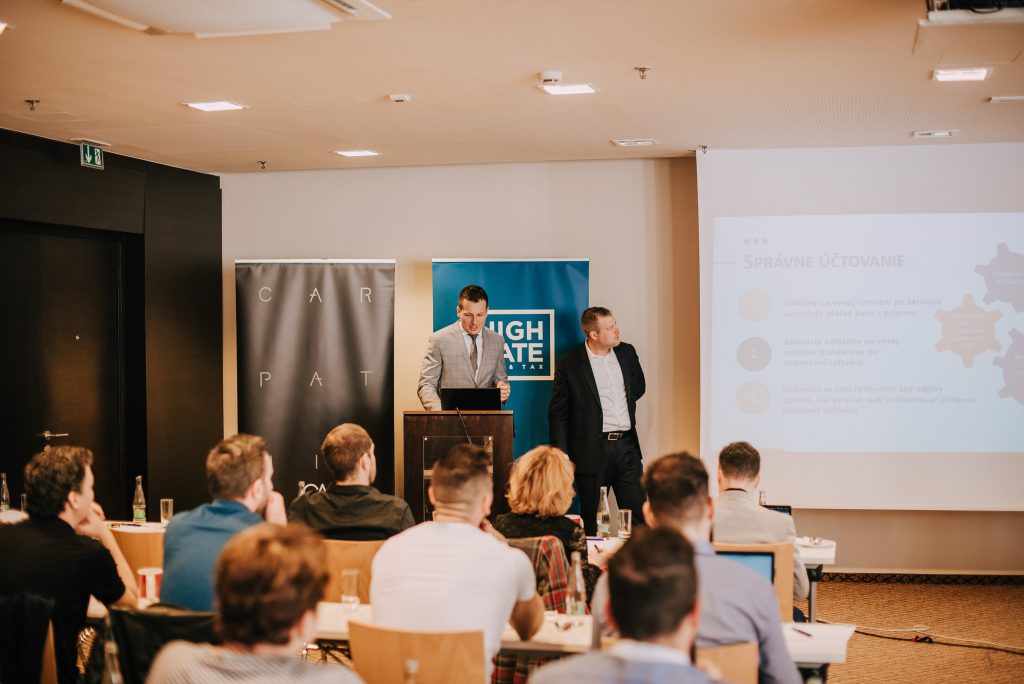
The year 2020 is expected to bring with it a significant advantage for the so-called.
The 2020 budget will bring with it a significant increase in the super deduction for science and research.
After the new tax regime, Slovak companies will probably not necessarily have to invent often complicated foreign constructions for tax optimisation.
If we combine the super-deduction with the so-called “tax deduction”, we will have to consider the possibility of a new tax deduction for research and development.
Patent Box, Slovak entrepreneurs will be able to enjoy the benefits of tax optimisation full-time in Slovakia.
Meanwhile, the amendment to the Income Tax Act, which is expected to be effective from 1 January 2020, introduces almost double the super deduction benefit for science and research.
Technically, this change will allow businesses to include qualifying costs as tax expenditures in the tax base multiple times.
This is a huge step forward from the original wording of the super deduction from the 2015 tax year.
While for the 2015 to 2017 tax years, a maximum of 75% of the relevant costs could be applied as an additional deduction (even in theory), 2018 allowed up to 150% under simplified conditions.
From 2020, however, this simplified additional deduction may increase to around 250%.
In order to claim the super deduction, it is normally necessary to identify the research and development in question, to set up a project for this research and development and then to implement it.
Such a project should have its own project and accounting guidelines.
It should also include a transparent costing and plan of activities.
In other words, the R&D project in question must be institutionalised.
Also, since not all R&D-related tax expenses are eligible for super-deduction, the relevant accounting records must be clearly recorded and demonstrable in the event of a tax audit.
In addition, expenditure that has already been supported by public funds (e.g. through tax credits under Section 30b of the Income Tax Act) cannot be the subject of a super deduction.
The advantage of this tax regime is that it is not necessary to apply the activation of development costs in order to benefit from it.
In other words, while in the Patent Box it is necessary that the intangible asset in question (i.e. a patent-protected invention, a utility model-protected technical solution or software) is activated in the accounts, in the Super Deduction it is not mandatory that the project in question achieves economic benefits.
The taxpayer can obtain the tax advantage even though his research or development does not lead to taxable income.
In such a case, if the taxpayer carries out another, profitable activity, the super deduction allows him to reduce his overall tax base.
Where is a lawyer needed?
The key to claiming the super deduction (especially for IT companies) is assessing whether their particular case is really about research and development.
This should be based, for example, on accounting procedures, the State Aid Organisation Act or OECD manuals.
In general, however, we can say that research costs are mainly costs of:
In particular, development costs are considered to be:
In every development, some new knowledge must be created.
Does or does not such knowledge arise in yours?
In situations where tax and accounting rules do not give a clear view, law is the last tool to increase legal certainty.
At our law firm, Highgate Group, we often times provide legal opinions on such unclear and uncertain issues.
The client files it in a drawer for their convenience and argues it in any potential litigation with the state.
In addition, we also represent clients in tax audits and before the courts.
Thus, at Highgate Group you can have comprehensive services under one roof.
We recently held a conference on these possibilities Tax optimization for IT companies.
In the context of the recently adopted tax changes to support research and development in Slovakia, it can be stated that research companies, including IT companies, may consider Slovakia as a tax haven.
For the same R&D project (including the development of a computer program), a company can claim a super deduction and, after activating the costs of its development and research, can tax only half of the income from the use of this intangible asset.
Taking into account the fact that the tax loss deduction is to be more favourable from 1 January 2020, the full application of both these tax institutes by the entrepreneur (i.e. the super deduction and the patent box) is quite realistic.
If you have any questions, please do not hesitate to contact us at info@hg.amcef.com
Law & Tax
Tomas Demo
tomas.demo@hg.amcef.com
Accounting
Peter Šopinec
peter.sopinec@hg.amcef.com
Crypto
Peter Varga
peter.varga@hg.amcef.com
Highgate Law & Tax
Nivy Tower, Mlynské Nivy 5,
821 09 Bratislava
Slovak Republic
Highgate Accounting
Nivy Tower, Mlynské Nivy 5,
821 09 Bratislava
Slovak Republic
E-mail
info@hg.amcef.com
Are you interested in the services of Highgate
Group? Get in touch at
info@hg.amcef.com
Careers
Interested in working for Highgate
Group? Get in touch at
info@hg.amcef.com